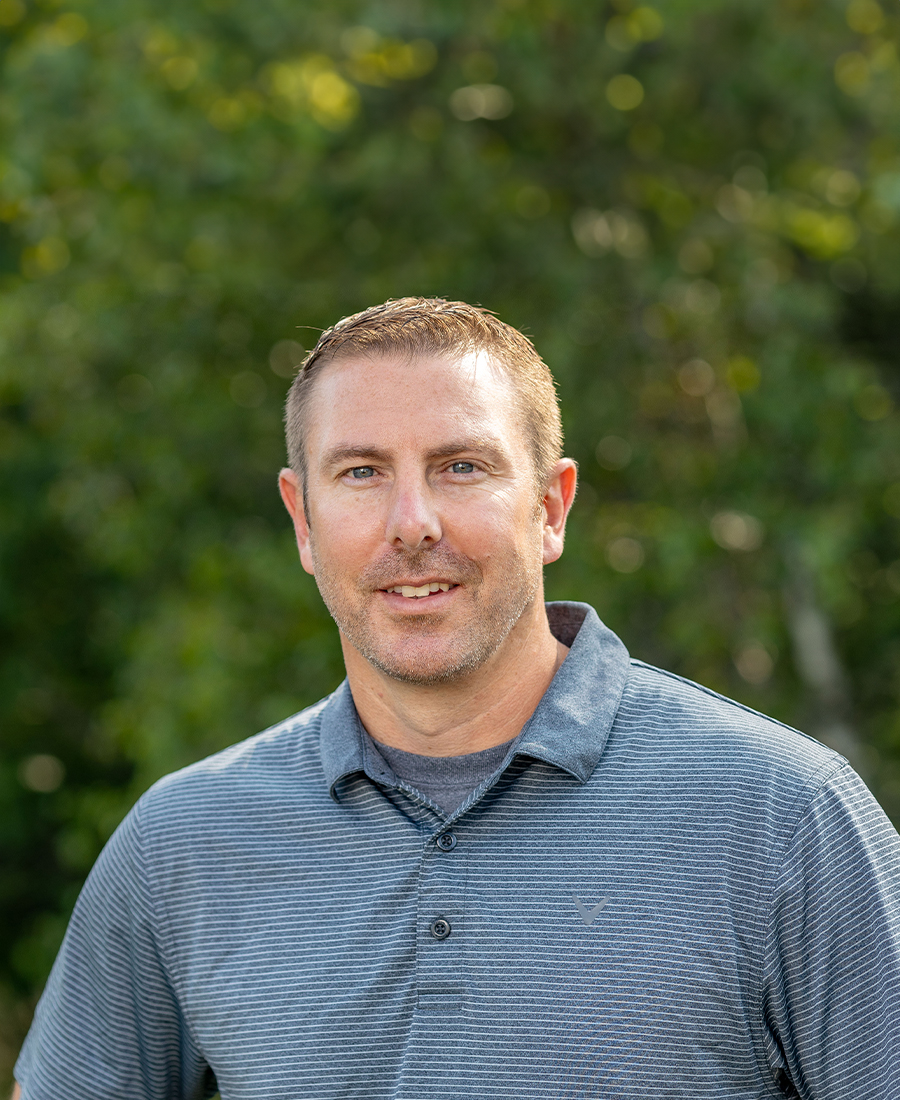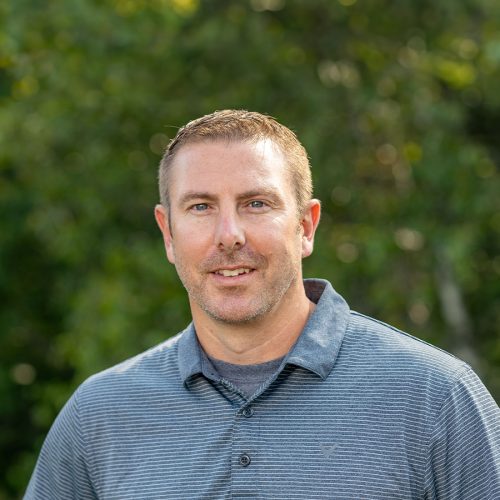

Q: What do you do here at Sargent? What are your typical responsibilities?
A: Let me grab my business card and see what it says on here. [laughs] It says I’m the Vice President of Operations & COO – North. On a typical day, my main responsibility is allocating resources — whether that’s manpower, equipment, or both — to all of the different jobs Sargent works on in the Southern Maine region.
Q: What is the biggest challenge of your role?
A: This job revolves around putting out fires. That eats up a lot of my time during the week, dealing with issues on specific jobs or on a personnel level. I’m usually going to wherever the hottest fire is at any given time and giving the superintendent a hand with putting that fire out. That can be tricky, partially because it’s unpredictable. You never know where the next fire will be.
Q: What was your education and work history before joining Sargent?
A: I went to the University of Maine for mechanical engineering, and I started working here in 2002. I actually worked for Sargent starting my sophomore year in college, so I worked all through college for Sargent and then stayed on after I graduated. Before that, I worked in a paper mill for one summer after my freshman year of college, and prior to that, it was just odds and ends high school jobs.
Q: What gets you out of bed in the morning and makes you excited to head into work for the day?
A: Every day is a different challenge, and I never run into the same thing twice. When I come into work, I think I’ll be working on one thing but then I end up working on 20 different things. I would just say that I really enjoy all of the changes and variety. It’s not just a nine-to-five job in a cubicle. I spend a percentage of my time in the office and a percentage of my time on job sites, and the rest of it is spent traveling around the region.
Q: Why is Sargent such a great company to work for?
A: I would say that what sets us apart is the engineering background we bring to the table. I always think of us as an engineering company that does construction. We hire lots of engineers right out of college. I think that gives us a little bit different dynamic than other earthwork companies across the country — or at least in Maine and New England — that we can bring that engineering piece to a project along with the earthwork.
Q: Are there any accomplishments throughout your career that you’re especially proud of?
A: Getting my professional engineer license was a big accomplishment. I got mine in 2012. It has proven to be a really helpful bonus for my career. It brings a level of clout or legitimacy to what I do. When a client sees that I’m a professional engineer, it helps me bring a high level of confidence to the project.
Q: Do you have any ideas about how the construction industry could better recruit young people?
A: That is the hottest topic that I’ve discussed with management within the organization. I think retaining young employees is almost as big of a challenge as getting them in the door in the first place. Our strategy is to build up our people organically so that we have someone ready to step in whenever there’s an open position.
Q: Is there anyone you look up to as a mentor or someone who showed you the ropes?
A: Tim Folster — our vice president who retired in 2020 — is definitely that person for me. I worked under him for over a decade and I had a really good working relationship with him. I always looked up to him and he molded me into who I am in this business. He gave me a lot of opportunities and he was just a great guy to work for.
Q: How do you like to spend your free time?
A: I’m married and I have two kids. We love going out to camp whenever we get the opportunity. I also enjoy coaching hockey — both of my kids play youth hockey. I like spending time at the rink, and it works out well because winter is the slowest time of the year for earthwork in Maine.